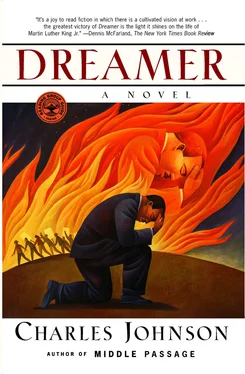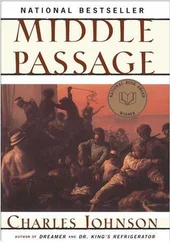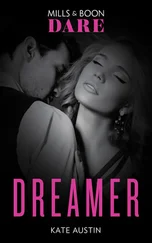Among her elderly patients, those belonging to the first black wave that migrated to Evanston, was a congenial black contractor named Robert Jackson whose company won the contract for building Calvary AME, and who, even after the white hospital began accepting Negro patients, remained loyal to Center and allowed his relations to take him nowhere else. They belonged to the same era, Dr. Hale and contractor Jackson — a breed of black men and women, like King’s parents and Amy’s great-grandfather, so toughened by prejudice, by the rule of having to do twice as much as whites to get half as far, that they regarded no problem as insurmountable. With little formal education, he’d come north from a farm near Abbeville in South Carolina during the 1920s, bringing nothing more with him than a strong back, a quick wit, and a burning need to succeed against staggering odds; he checked out Chicago, then moved to Evanston, where Negroes found leftovers from the tables of well-to-do whites somewhat larger than the scraps tossed to blacks in the city. No question, there was a residue of apartheid here. Black women, when cleaning some white homes, were likely to find literature from the John Birch Society on the living room coffee tables. But where others saw only racial restrictions and what they couldn’t do, Jackson, a tall, dark-fired man who was most certainly a follower of Booker T. Washington, believed in his bones that opportunities had to be made by Negroes if they were to happen at all. Was the hospital segregated? Did Northwestern’s sororities exclude blacks in their charters? Were white milk companies denying service to colored folks who settled in Evanston after their long sojourn from Georgia, Louisiana, and Alabama? Always a man who preferred work and getting his hands dirty to complaining, building to bellyaching, Bob Jackson responded to racism by founding the Jackson Dairy Company. Every morning before daybreak he delivered on black doorsteps milk in pint bottles of thick, sturdy glass that bore his name on the front and on the back the reminder This bottle not sold … Wash and Return . He labored to put his business in the black (no pun intended, Amy said), came up with a catchy jingle for it, and did well enough, thank you, until the Depression brought it abruptly to an end, but not by any means his restlessness, ambition, and sense of industry.
Construction work came next, mainly as a way to make ends meet, though Bob Jackson was never satisfied, according to what Amy’d learned from her grandmother, working for other people. He stayed on the crew long enough to learn the ropes, then ventured out on his own again, this time unveiling yet another dream that had him up pacing the floor at night and pulling his hair, the little he had in his late fifties. By name, the dream was the Jackson Construction Company. And his first act as an entrepreneur was to offer jobs to the sons of his brothers down South. The elder Jackson’s new business thrived for decades, drawing on a pool of black subcontractors who helped him raise churches, apartment complexes, and residences — places for his people to live and worship their god — all over the North Shore, including the two-story, many-roomed building he built for himself in the heart of the black community on Simpson Street, with rental spaces on the first floor for a beauty parlor and a barbershop.
The product of his labor made Bob Jackson a proud man well enough off to buy a bench for his family at Calvary AME, where his nieces sang in the choir; for despite obstacles and a hundred white men who’d stood in his way (and were now deservedly long forgotten, with no monuments on the landscape to mark their existence), he could boast that his blood built this town. With many black Evanstonians he shared the belief that life was getting better, that their offerings to the Lord had been blessed a hundredfold since they left the South, and with legal segregation struck down he counseled his platoon of grand-nephews and — nieces (spared the devastating discrimination he’d known) that if they were genuinely concerned about the economic inequities they saw in the world, “The best thing you children can do for the poor is not be one of them.” On the surface it sounded harsh, but his relations knew their great-uncle meant something else, that by fulfilling his duties as a householder, by creating wealth, he always had deep pockets into which their fathers and mothers could reach for funds when they needed the down payment on a home, or extra cash to cover their bills when they were between jobs. Bob Jackson paid his grand-nieces and — nephews four dollars for every A they received at Noyes Elementary School and Sidles Junior High, three dollars for every B (nothing for a C), and established a trust fund they could draw upon for college tuition because more than anything else he wanted them to have the one thing he lacked in 1966 that kept him from becoming a millionaire. “Get an education,” he told them. “Don’t you put anything ahead of that.”
Smith was scrunched down in the backseat of the Chevelle, allowing Amy to apply a Band-Aid to exactly the spot on his forehead where the minister was struck by a brick. “That’s who’s coming to this church tonight?” He was still high, sailing on heroin. His voice trembled. “People like them?”
“Probably,” Amy said. “People like Mr. Jackson’s kin, Dr. Hale, and Leroy Young. He rewired the bookstore, Great Expectations, over near the university. They don’t make headlines. They’re just proud, quietly pious, good people. Like the folks in Doc’s community in Atlanta.” She gazed out the window at palatial homes perched far back from the road on Ridge Avenue. “They’re the ones who want to honor Doc. I’m pretty sure Elijah Muhammad would bomb here.”
“You didn’t tell me any of this before I said I’d do it.”
“Why?” she asked. “Does it matter?”
“Yeah, it matters. Everything here seems so … finished . God loves these Negroes. What do I say to them?”
“Nothing!” I whirled round in my seat, grabbed his tie, and pulled his head toward me. “You don’t say a blessed thing, Chaym, you hear me? That’s not what we’re here for.” I almost lost control of the steering wheel, so I let his tie go, and took a deep breath to steady myself. “Besides, I don’t think you’re ready. Just accept the goddamn prize for Doc and get down off the pulpit as soon as you can. Tell the pastor you’re tired. Tell him you’ve got laryngitis. Tell him anything, but wrap this up as fast as you can. If you don’t, you’ll ruin everything. Got that?”
“You don’t think I’m good enough to give a speech here?”
“I didn’t say that.”
“But it’s what you meant ,” he grumbled. “Shit, as long as he’s alive, I guess I’ll always be nothing.”
Amy cleared her throat to end the conversation. “Matthew, look in the rearview mirror.”
“Why?”
“Just look, will you?”
I cranked down my window and in the mirror affixed to the door saw a plain green Plymouth about five car-lengths behind us.
“Those Wise Guys,” said Smith, “have been baby-sittin’ us since we left Doc’s apartment. I recognize the plates. That’s a government car …”
Amy pressed her nose against the back window. “Why’re they following us?”
“I’ll give you three guesses,” said Smith, “and the first two don’t count. You gonna call this off?”
“No.” I slowed the car to a crawl. “I think I can circle around the block and lose them.”
Amy shook my shoulder. “Are you kiddin’? The church is straight ahead and — oh no, will you — will you look at that?”
The entire block from Dodge Avenue to Darrow was cordoned off. Vans from local radio and television stations were parked alongside the church, closed in by a crowd I estimated to be at five or six hundred. A traffic cop, young, still wearing his sunglasses though it was twilight, waved vehicles west up Emerson Street toward Skokie. I slowed the Chevelle even more, rolled down my window, told the cop I was bringing the minister for tonight’s service, then turned right toward the church when he let me through. The green Plymouth eased toward the curb at the end of the block. Sunlight was fading fast. I couldn’t clearly see the faces of the men following us, and then there was no time to think about them because Calvary AME’s pastor, Rev. Jacob Coleman, a tidy-looking, tea-colored man with a chrysanthemum in his buttonhole who’d been waiting inside the door, rushed outside. He took Smith by the arm, explaining that his ushers would provide security, and led us through people trying to touch or detain the man they thought was King to the rear of the church.
Читать дальше












